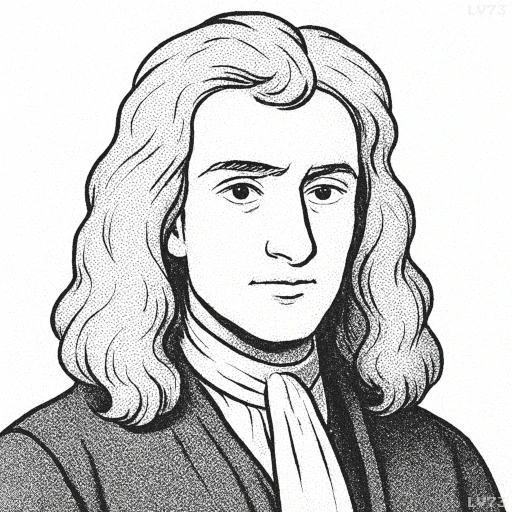“That the divided but contiguous particles of bodies may be separated from one another is a matter of observation; and, in the particles that remain undivided, our minds are able to distinguish yet lesser parts, as is mathematically demonstrated.”

- January 4, 1643 – March 31, 1727
- Born in England (UK)
- Natural philosopher, mathematician, physicist, astronomer, theologian
table of contents
Quote
“That the divided but contiguous particles of bodies may be separated from one another is a matter of observation; and, in the particles that remain undivided, our minds are able to distinguish yet lesser parts, as is mathematically demonstrated.”
Explanation
In this quote, Isaac Newton is discussing the nature of matter and the idea that matter can be divided into smaller parts. He points out that through observation, we can see how the contiguous particles of matter, when separated, are distinct from each other. Newton also suggests that, even in particles that remain undivided, our minds are capable of conceptualizing smaller components, which can be demonstrated through mathematical reasoning. This reflects his belief in the infinite divisibility of matter, where even the smallest known particles may still be divisible into even finer parts, a concept that would later be explored more deeply with the advent of atomic theory and quantum mechanics.
Newton’s insight into the divisibility of matter, although rooted in classical physics, also touches on the boundaries of human knowledge and perception. The idea that our minds can conceptualize even smaller parts of matter was important in the development of the scientific method, where abstract reasoning, coupled with mathematical demonstration, plays a crucial role in explaining natural phenomena. Newton’s reference to mathematical demonstrations is significant because it highlights the use of mathematics as a tool to understand the world, an approach that he pioneered in his work on motion and gravity.
In modern science, Newton’s view of the divisibility of matter can be seen as a precursor to later developments in atomic theory and particle physics. Today, we understand that matter is composed of atoms, which are in turn made of even smaller subatomic particles like quarks and electrons. Newton’s recognition that matter can be divided into smaller and smaller parts, with the potential for further subdivision, laid the groundwork for the study of quantum mechanics, which explores the behavior of matter at the smallest scales. His insight that the smallest particles could be understood through mathematical reasoning continues to guide modern physics, where mathematical models are used to predict the behavior of particles and forces at the subatomic level.
Would you like to share your impressions or related stories about this quote in the comments section?
